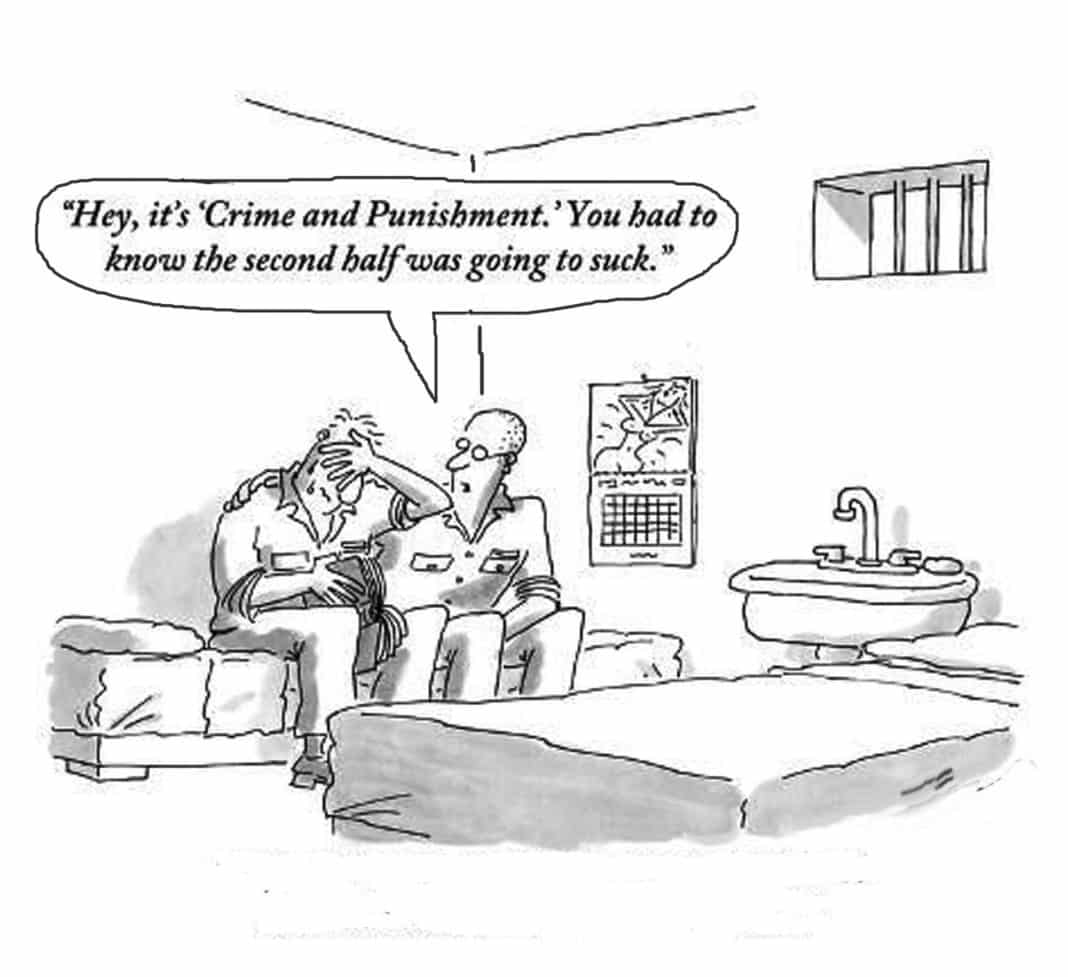
Behind every great fortune there is a crime, wrote the French author Balzac, by which reckoning my ancestors must have been extremely law-abiding. As pure as the driven neige.
If crime doesn’t pay, why are there so many criminals? One ex-criminologist put it down to the fact that modern prisons are “holiday camps with three square meals a day, medical care, free legal advice, educational opportunities, and they launder your clothes at no extra charge.” Not sure if that last joke was intentional.
A city in America is proposing to pay criminals not to commit crimes for a specific period of time, which sounds similar to a supermarket’s ‘limited offer only,’ except the customer gets to pocket the cash for doing nothing. Many lawbreakers have problems managing their personal finances, so one wonders what they will do when their bribe falls at the first fence. Run into a bank and ask for a non-returnable loan, perhaps.
There must be large numbers of crooks for whom crime has paid, but their success in evading detection (and detectives) makes it impossible for an honest researcher to gather reliable statistics. When did a person armed with a clipboard last approach you in the street and inquire, “Have you ever robbed a bank, sir/madam?” Did you give an honest answer? What about your little sister’s piggy bank, does that count?
The maxim ‘Crime Doesn’t Pay’ originated as an FBI slogan in 1927, and today organised crime is Britain’s fourth-largest industry, with an annual turnover in excess of £20 billion. There are many new crimes for our modern age — insider trading, internet scams, tax evasion, identity theft, the opium poppy proliferation, people trafficking and worse, if you can think of anything worse.
It must be harder than ever before to make crime profitable, not that it was all that easy in the past. Crime may have paid — at one remove — for successful bounty hunters in the Wild West, when outlaws had prices on their heads. And master criminals like Professor Moriarty and Natwarlal — who repeatedly sold the Houses of Parliament and the Taj Mahal — were probably never short of ill-gotten gains to jingle in their pockets.
But the Penguin would be easy to pick out in an identity parade, and Butch and Sundance struggled to make a dishonest living, as did Bonnie and Clyde. The English murderer Beverley Allitt is certainly paying for her crimes, currently serving 13 life sentences. Will she survive to serve even two, I wonder? Your guess is as good as mine. Lord Lucan is 88 now, and living in the glens of Scotland.
There is a touch of moral ambiguity about the actions of Robin Hood, who — allegedly, Your Lordships! — robbed the rich and gave to the poor. Which at first glance may sound like an early version of income tax, i.e., theft. But Robin must have used a lot of his loot for the upkeep of his band of outlaws in Sherwood Forest.
His Lincoln green costume would constantly need repair after snagging on twigs and branches, and the Merry Men might be less than pleased with a constant diet of venison. The amount remaining for distribution to the poor would be next to nothing. Criminally low, some might say. Robin probably spent most of his available funds on Maid Marion, that’s usually the way a gangster — or hood — treats his moll. Like the evergreen trees in Sherwood Forest, some things never change.





